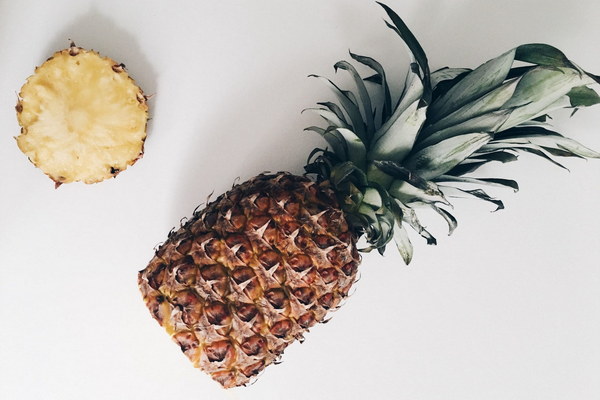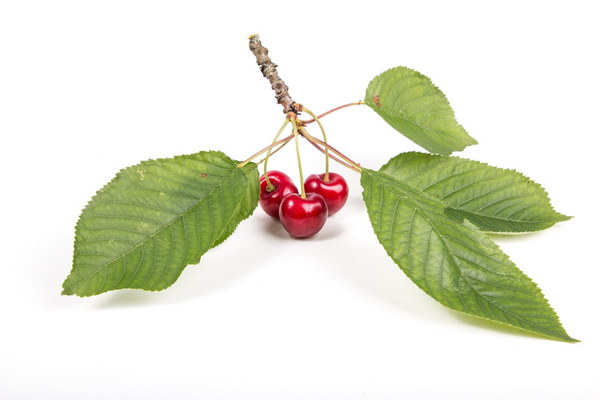Decoding Liver Health A Visual Guide to Traditional Chinese Medicine for Hepatoprotective Remedies
In the realm of traditional Chinese medicine (TCM), there exists a wealth of natural remedies aimed at supporting liver health. These hepatoprotective herbs and compounds are designed to nourish, detoxify, and strengthen the liver, thereby promoting overall well-being. This article presents a visual guide to some of the most commonly used TCM ingredients that can help in the journey towards a healthier liver.
Visual Guide to Hepatoprotective Chinese Herbs and Compounds
1. Scutellaria baicalensis (Huangqin): Known for its anti-inflammatory and antibacterial properties, this herb is often used to treat liver inflammation and jaundice.
2. Bupleurum chinense (Chaihu): This herb is commonly used to treat liver qi stagnation, a condition associated with stress, irritability, and menstrual disorders.
3. Silymarin (Milk Thistle): Extracted from the seeds of the milk thistle plant, silymarin is a potent antioxidant that helps protect liver cells from damage.
4. Poria cocos (Fu Ling): Often combined with other herbs, poria cocos is believed to aid in draining dampness and supporting liver function.
5. Rehmannia glutinosa (Shu Di Huang): This herb is known for its blood-nourishing properties and is often used to treat liver diseases that result in blood deficiency.
6. Cynanchum wilfordii (Bai-Zhu Aconitum): Used to treat liver qi stagnation and improve digestion, this herb is also known for its ability to expel cold and dampness.
7. Forsythia suspensa (Lian Qiao): This herb is commonly used to clear heat and relieve sore throat, but it also supports liver function by clearing liver heat.
8. Peony root (Shao Yao): Known for its blood-circulating properties, peony root is often used to treat liver-related conditions that involve blood stasis.
9. Paeonia lactiflora (Ban Xia): Used to treat various liver disorders, including liver qi stagnation and liver-fire, this herb also has carminative properties.
10. Inula helenium (Huang Qin): Similar to Scutellaria baicalensis, inula helenium is used to treat liver inflammation and jaundice.
Understanding the Science Behind Hepatoprotective TCM
The concept of liver health in TCM is based on the idea that the liver is responsible for regulating the flow of qi (vital energy) and blood in the body. When this flow is blocked, it can lead to a variety of health issues, including those affecting the liver. TCM practitioners believe that certain herbs and compounds can help restore the balance of qi and blood, thereby promoting liver health.
The science behind these hepatoprotective remedies is quite fascinating. For instance, silymarin, the active compound in milk thistle, has been shown to protect liver cells by inhibiting the formation of harmful free radicals and by promoting the regeneration of liver cells. Similarly, bupleurum chinense has been found to improve liver function by reducing liver inflammation and promoting bile flow.

How to Use Hepatoprotective TCM Remedies
While TCM remedies can be effective for promoting liver health, it's important to use them correctly. Here are some tips for incorporating these hepatoprotective ingredients into your wellness routine:
- Consult with a qualified TCM practitioner before starting any new herbal regimen.
- Follow the recommended dosage and administration instructions provided by your practitioner.
- Combine different herbs and compounds based on your specific health needs.
- Monitor your body's response to the treatment and adjust as necessary.
In conclusion, the world of TCM offers a plethora of natural remedies that can support liver health. By understanding the properties and benefits of these hepatoprotective herbs and compounds, you can make informed decisions about your health and well-being. Always remember to seek professional advice when considering the use of any herbal remedies, and embrace the wisdom of traditional medicine in your quest for a healthier liver.









